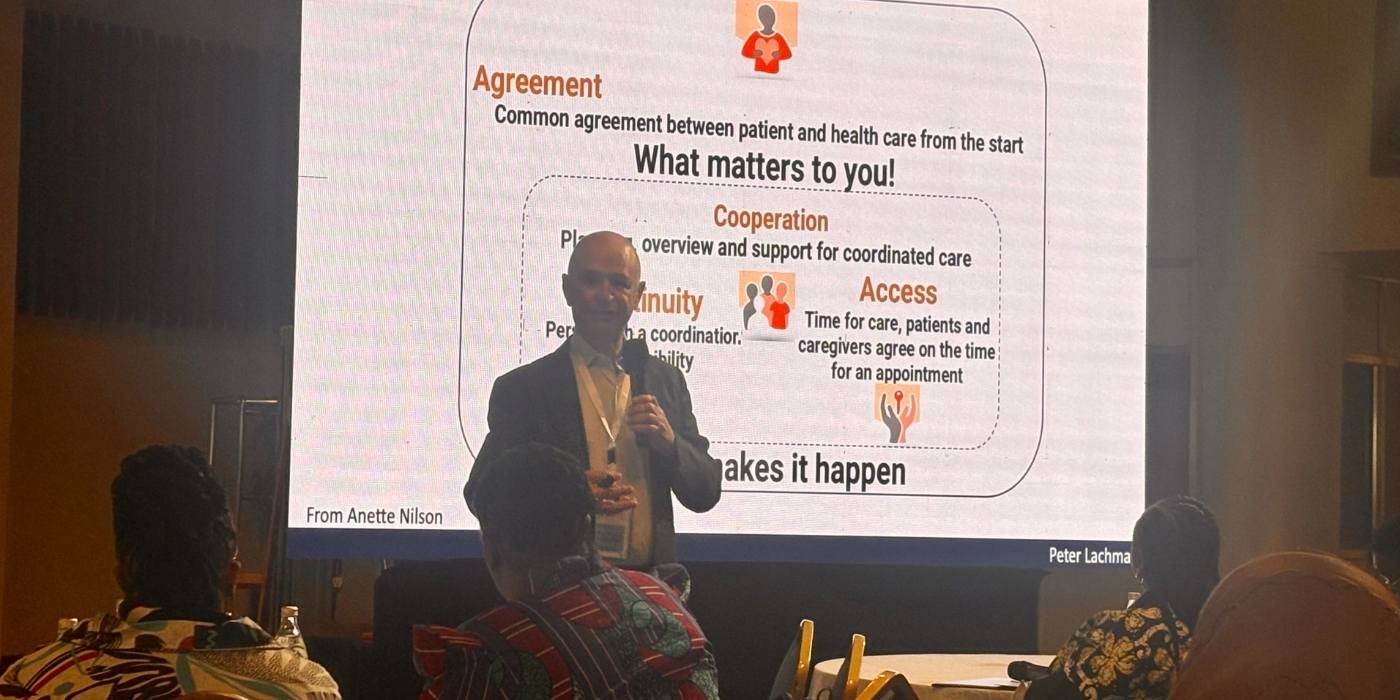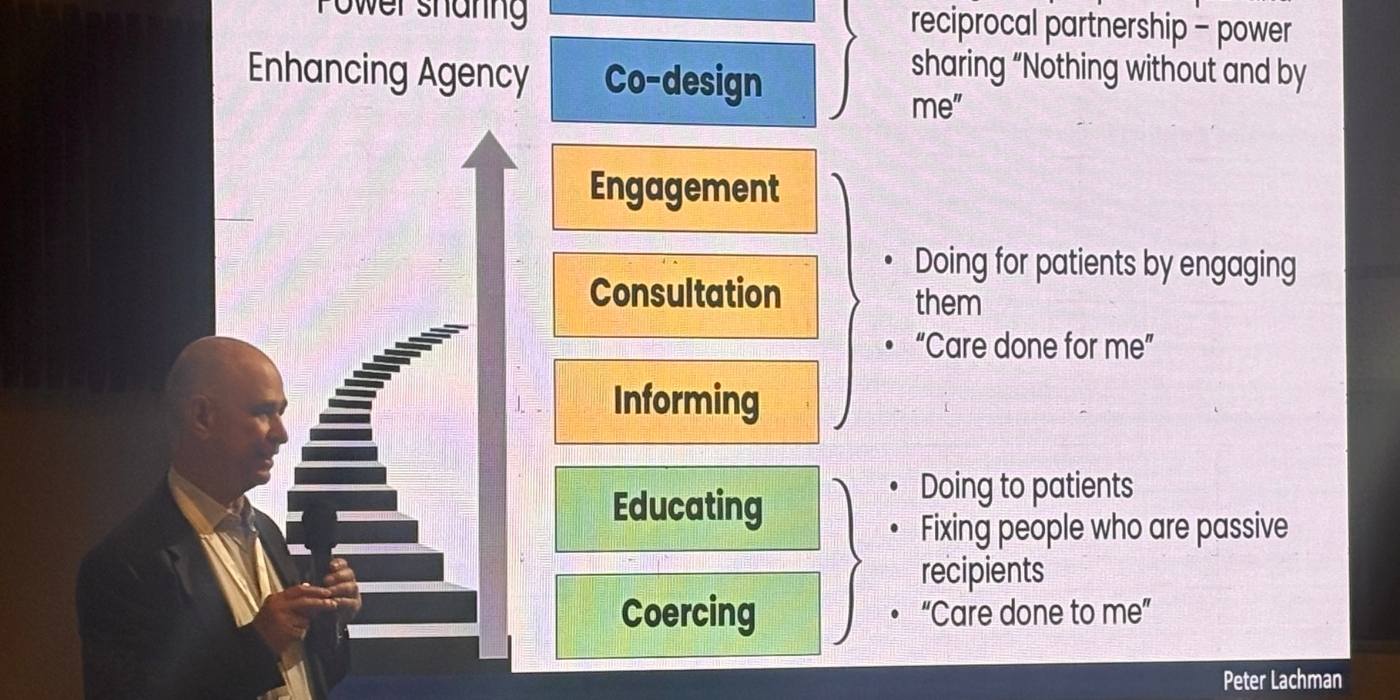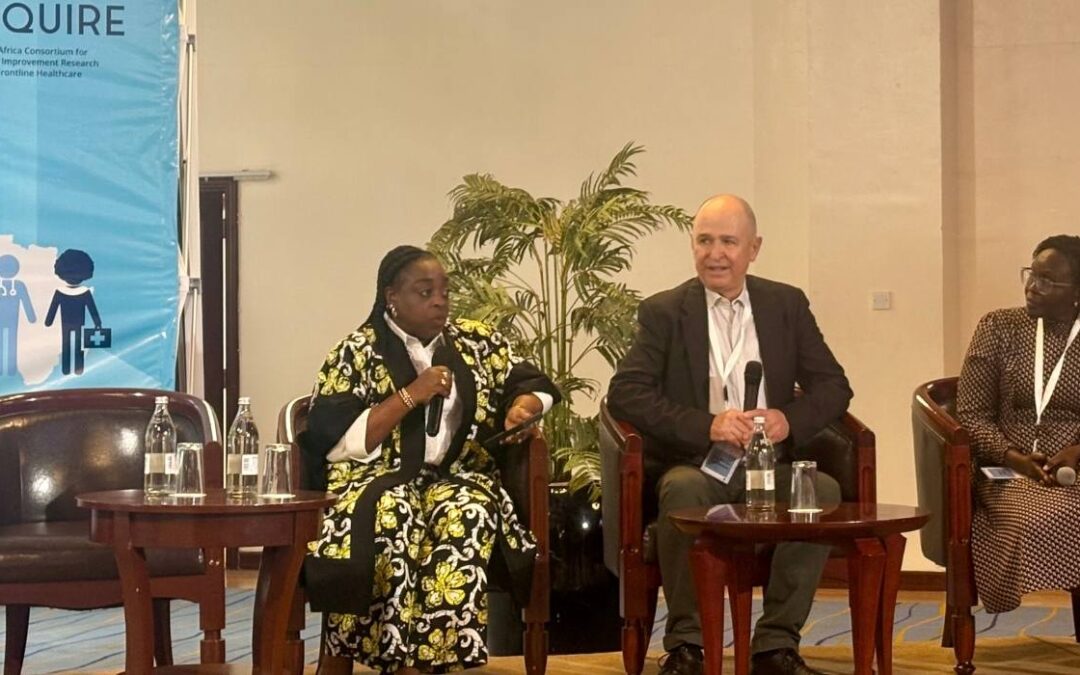Session 5 challenged healthcare leaders to move beyond compliance toward empowering partnership with patients. Dr. Peter Lachman, former CEO of ISQua, guided participants through the evolution from "policing" quality assurance to co-producing care with communities.

Quality Assurance and Quality Improvement Are Distinct
Table discussions confirmed contrasts between Quality Assurance and Quality Improvement. Participants from Nigeria to Ethiopia agreed: QA emphasizes “policing with standards and certificates,” while QI focuses on “systematic process improvements.” Dr. Faith Leilei from AIC Kijabe Hospital shared how they removed “assurance” from their quality department name due to negative connotations.
Learning New Dance Steps
Lachman introduced a “Quality 3.0” framework using dance as metaphor. After getting participants moving to Kenyan rhythms, he explained: “Doctors have a dance step. Patients know different steps. We must learn to dance to the patient’s rhythm, not force them to follow medical protocols.”

Power Dynamics Exposed
Real-time polling revealed most participants feel they’re operating in “informing” stages with patients rather than true co-design. Lachman’s personal story of canceling his own surgery demonstrated patient power: “This patient doesn’t know they have rights. Co-production is about sharing power.”
The Ubuntu Solution
Connecting to African philosophy, Lachman emphasized: “I am because we are. ACQUIRE is a born-African movement. You have the power to co-produce without needing UK or America.
Next Steps
The consensus was clear: Africa benefits from systematic integration of QI and patient safety training at all levels, supported by regulatory bodies awarding CPD points and protected time for implementation
Next Up:
Session 6 explores how artificial intelligence can enhance human-centered communication and support the co-production journey across African healthcare systems.

